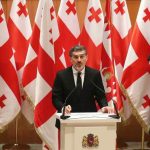Professor Lawrence Bobo, Dean of Social Science and the W. E. B. Du Bois Professor of the Social Sciences at Harvard University, has an article in the Harvard Crimson on the proper limits of faculty speech that has to be read to be believed.
He writes:
Is it outside the bounds of acceptable professional conduct for a faculty member to excoriate University leadership, faculty, staff, or students with the intent to arouse external intervention into University business? And does the broad publication of such views cross a line into sanctionable violations of professional conduct?
Yes it is and yes it does.
Vigorous debate is to be expected and encouraged at any University interested in promoting freedom of expression. But here is the rub: As the events of the past year evidence, sharply critical speech from faculty, prominent ones especially, can attract outside attention that directly impedes the University’s function.
A faculty member’s right to free speech does not amount to a blank check to engage in behaviors that plainly incite external actors — be it the media, alumni, donors, federal agencies, or the government — to intervene in Harvard’s affairs. Along with freedom of expression and the protection of tenure comes a responsibility to exercise good professional judgment and to refrain from conscious action that would seriously harm the University and its independence.
In support of this position, he even notes “you can’t escape sanction for shouting ‘fire’ in a crowded theater.”
Conor Friedersdorf has an appropriate response to Dean Bobo’s argument, tweeting: “Harvard Dean Lawrence D. Bobo’s op-ed has incited me, an external actor, to publicly lament the subset of Harvard leaders who neither understand nor support free speech. By his logic, I guess he needs to be sanctioned.”
https://x.com/conor64/status/1802280647563661516
One suggestion the article makes which is worth some consideration is that faculty should be sanctioned for encouraging students to engage in civil disobedience that violates university policies and puts the students at risk of sanction. I would agree that faculty who encourage that students put themselves at risk of punishment while they sit on the sidelines themselves are cowardly, but I disagree that encouraging others to engage in civil disobedience is itself civil disobedience that can or should be sanctioned.
Regrettably, this is not the first time I have heard university administrators suggest that speech by faculty or other members of the university community should be curtailed if it might generate controversy, provoke a response, or otherwise reflect poorly on the university. (I can also say, from personal experience, that if my university had ever adopted such a position, I would have been among those in the crosshairs.) That there are university administrators—let alone prominent professors such as Dean Bobo—who do not recognize the profound threat such a position poses to academic freedom and the truth-seeking function of a university is both sobering and depressing.
The post A Frightening View of Free Speech and Academic Freedom at Harvard appeared first on Reason.com.






